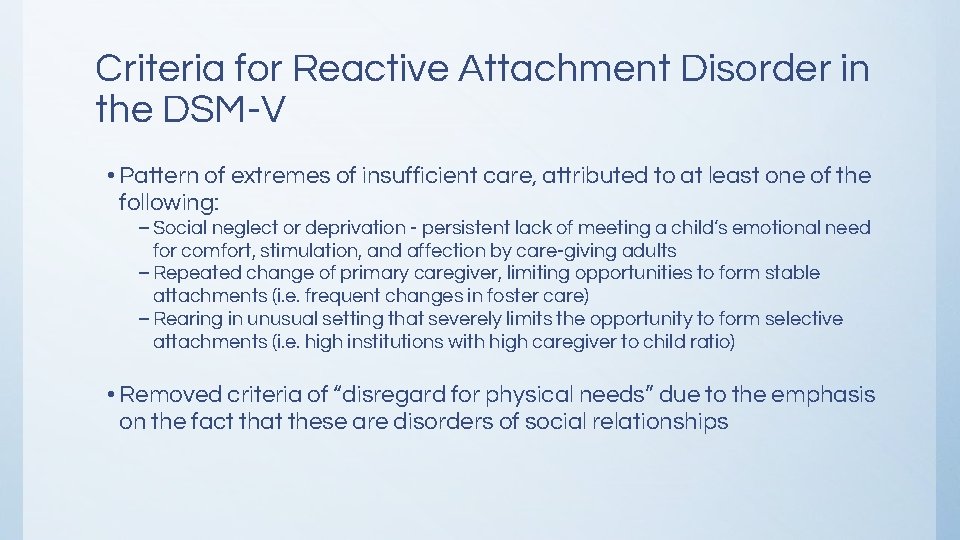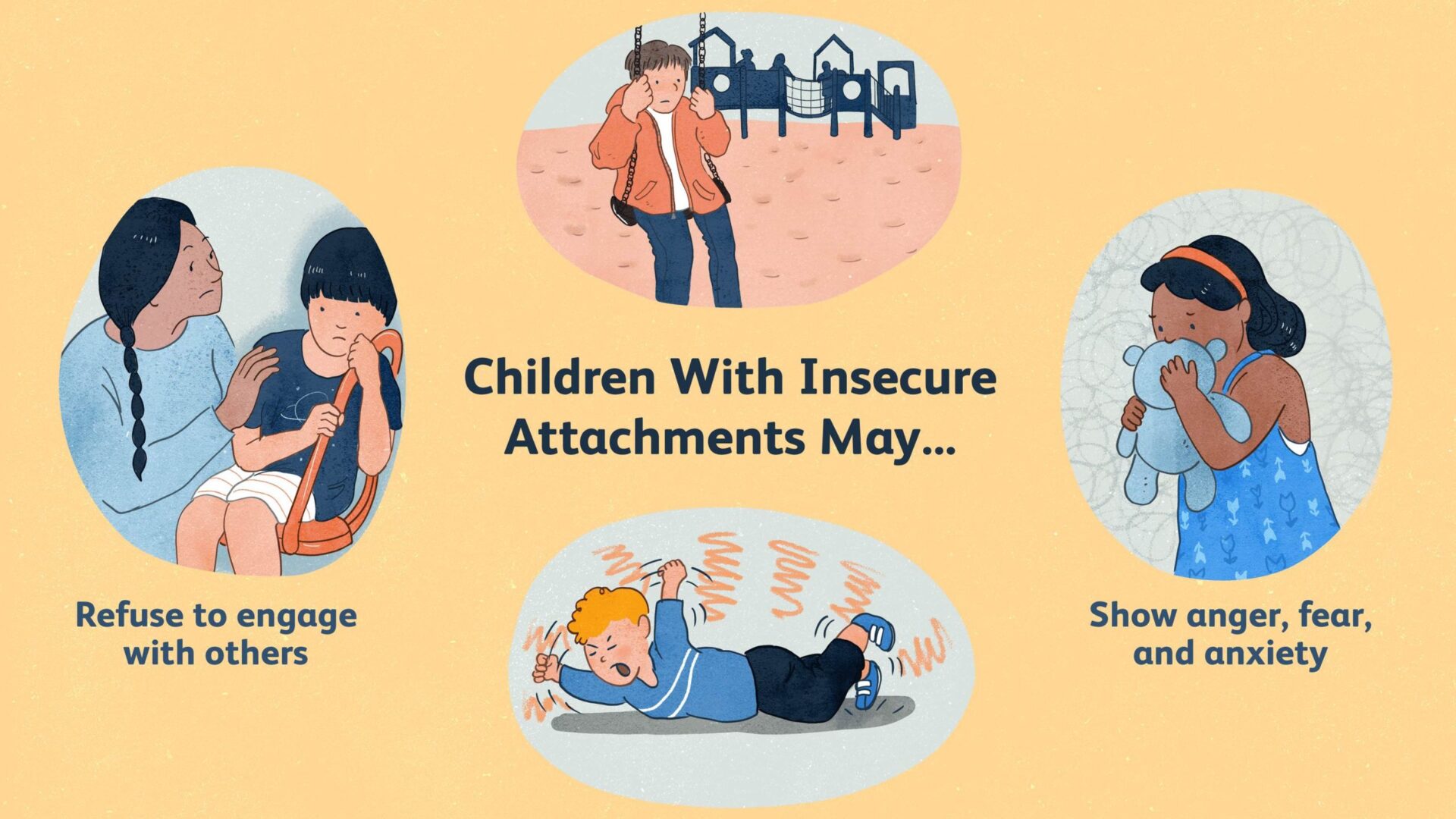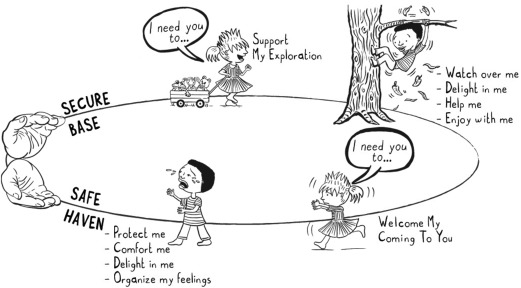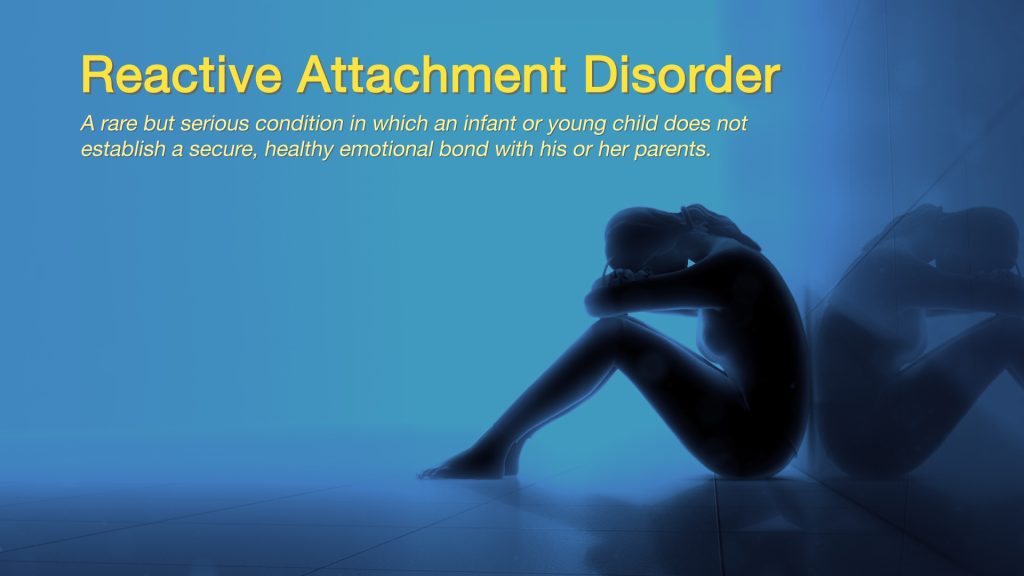If you have a child who is struggling to form and maintain healthy attachments with others, you may be wondering if they have a reactive attachment disorder. This condition can be difficult to diagnose. As it often manifests in different ways in different people. In this blog post, we will explore all aspects of reactive attachment disorder. So that you can make an informed decision about how best to support your child.
Contents
Understanding Attachment Disorder
Attachment disorder is a condition that affects the way a person forms and maintains relationships with others. People with reactive attachment disorder have difficulty forming healthy attachments with others due to a history of neglect or abuse. They may avoid social interaction, be dismissive of other people’s attempts to connect with them, or become overly attached to one specific person.
Types Of Attachment Disorder
There are two main types of attachment disorder: reactive and disinhibited.
- Reactive attachment disorder is the most common type, and it occurs when a person has difficulty forming healthy attachments due to a history of neglect or abuse.
- Disinhibited attachment disorder is less common, and it occurs when a person exhibits excessive friendliness or inappropriate sexual behavior towards others.
Reactive Attachment Disorder

Reactive attachment disorder (RAD) is a condition that results when a child does not form healthy attachments with primary caregivers. This can lead to problems forming and maintaining relationships with others throughout life.
How Common Is Reactive Attachment Disorder?
It is difficult to estimate how common reactive attachment disorder is, as it often goes undiagnosed. However, it is thought to be relatively rare, affecting around one percent of the population.
Signs And Symptoms Of Reactive Attachment Disorder

There is no one “sign” of reactive attachment disorder. As it can manifest in different ways in different people. However, some common signs and symptoms include:
Difficulty forming relationships with others: People with RAD may find it difficult to form close relationships, and may instead prefer to be alone.
Inability to trust others: People with RAD may have a hard time trusting other people, often due to emotional abuse or neglect in early childhood.
Lack of emotion: People with RAD may appear flat or unemotional. Especially around caregivers or people, they are trying to form a relationship with.
Problems regulating emotions: People with RAD may have difficulty regulating their emotions. Therefore, it can lead to outbursts or self-harm.
Compulsive behaviors or rituals: People with RAD may engage in compulsive behaviors or rituals as a way to cope with their emotions.
Self-harm: People with RAD may be more likely to engage in self-harm behaviors. Such as cutting or burning themselves.
Sensitivity to rejection: People with RAD may be very sensitive to any kind of rejection. And may react strongly when they feel like they are being ignored or excluded.
Abnormal emotional reactions (e.g., excessive anger, sadness, or fear): People with RAD may have abnormal emotional reactions to everyday situations. Therefore, can be difficult to manage.
Possible Causes Behind Reactive Attachment Disorder
There is no one definitive cause of reactive attachment disorder. As it can be the result of a variety of factors. Some possible causes include:
Emotional neglect or abuse: If a child does not receive enough love, affection, and attention from their caregivers, they may be more likely to develop RAD.
Biological factors: There may be some biological factors that make a child more prone to developing RAD. Such as genes or brain chemistry.
Traumatic experiences: If a child has experienced traumatic events (e.g., abuse, neglect, or a natural disaster), they may be more likely to develop RAD.
Parenting style: If a child’s caregivers are inconsistent or unresponsive, it can lead to RAD.
Children Prone To Developing RAD
There is no one “type” of a child who is more likely to develop a reactive attachment disorder. However, there are some factors that may make a child more prone to developing RAD, including, children who have:
Experienced emotional neglect or abuse in early childhood: Children who have experienced neglect or abuse are more likely to develop RAD.
Been in multiple foster homes: Children who have been in multiple foster homes may be more prone to developing RAD, as they may not have formed strong attachments with any of their caregivers.
Children who were born prematurely: Children who were born prematurely may be more prone to developing RAD. As they may have experienced difficulties in their early development.
Have experienced traumatic events: Children who have experienced a traumatic event, such as abuse or neglect, are more likely to develop RAD.
Have a family history of RAD or other mental health disorders: Children who have a family history of RAD or other mental health disorders may be more prone to developing RAD.
Parenting Style That Can Lead To RAD
There is no one “type” of parenting style that can lead to reactive attachment disorder. However, some factors that may contribute to RAD include, parents who are:
Inconsistent or unresponsive: Parents who are inconsistent or unresponsive may be more likely to lead to RAD.
Over-involved or over-protective: Parents who are over-involved or over-protective can also contribute to RAD.
Parents who use physical punishment: Children who are physically punished by their parents are more likely to develop RAD.
Living With Reactive Attachment Disorder
People with reactive attachment disorder often face many challenges in their everyday lives. Some of the most common challenges include:
Facing their emotions: People with RAD may find it difficult to face the emotions that they experience. Instead, they often bury them.
Managing relationships: People with RAD may have difficulty managing relationships. It is often due to trust issues.
Coping with stress: People with RAD may not have effective coping mechanisms for dealing with stress. Thus, it can lead to problems.
Feeling isolated and alone: People with RAD often feel like they don’t fit in with mainstream society. Therefore, they can often feel isolated from others.
Having trouble trusting people: People with RAD may have a hard time trusting other people. It is often due to emotional abuse or neglect in early childhood.
Experiencing intense emotions: People with RAD may experience intense emotions that can be difficult to manage.
Having difficulty forming relationships: People with RAD may find it difficult to form close relationships. Instead, they prefer to be isolated.
Negative Implications Of Reactive Attachment Disorder
There are several possible negative implications of reactive attachment disorder. Some of the most common implications include:
Having trouble succeeding in life: People with RAD may have difficulty succeeding in life. It is due to difficulties forming relationships and coping with stress.
Engaging in self-destructive behaviors: People with RAD may be more likely to engage in self-destructive behaviors. Such as drug or alcohol abuse.
Having mental health issues: People with RAD are at a higher risk for developing mental health issues. Such as depression or anxiety.
Coping With Reactive Attachment Disorder
Several self-help tips can be useful for people with reactive attachment disorder. Some tips that may be helpful include:
Identifying your triggers: It can be helpful to identify the things that trigger your symptoms of RAD.
Building a support system: A strong support system can help deal with RAD.
Creating a stress management plan: A stress management plan can help you to deal with stressful situations healthily.
Establishing boundaries: It is important to set boundaries with the people in your life. Especially those who are emotionally abusive.
Treatment Options For RAD
There are several ways that people with reactive attachment disorder can cope with their condition. Some methods that may be helpful include:
Therapy: Therapy is often an effective way for people with RAD to learn how to deal with their emotions and manage relationships.
Support groups: There are often support groups available for people with RAD. It can help them feel less alone.
Self-care: People with RAD need to practice self-care. Such as relaxation techniques and healthy eating habits.
Medication: If a person has co-occurring mental health issues, medication may be necessary to treat those conditions.
Therapies That Can Help With RAD
Several therapies can be helpful for people with reactive attachment disorder. Some of the most common therapies include:
Cognitive-behavioral therapy: Cognitive behavioral therapy helps people to change the negative thoughts and beliefs that contribute to their RAD.
Dialectical behavior therapy: Dialectical behavior therapy helps people learn how to regulate their emotions and manage relationships.
Play therapy: Play therapy helps children to express their emotions and feelings in a safe and non-judgmental environment.
Medications That Can Help With RAD
If a person has co-occurring mental health issues, medication may be necessary to treat those conditions. Some of the most common medications that are prescribed for people with RAD include:
Antidepressants: Antidepressants can help to stabilize moods and reduce symptoms of depression.
Anti-anxiety medications: Anti-anxiety medications can help to reduce symptoms of anxiety.
Mood stabilizers: Mood stabilizers can help to regulate moods and prevent episodes of mania or depression.
Making A Child Feel Loved And Secure With RAD

If you have a child who has been diagnosed with reactive attachment disorder, there are a number of things that you can do to make them feel loved and secure. Some tips that may be helpful include:
Creating a stable routine: A stable routine can help children with RAD to feel safe and secure.
Providing positive reinforcement: Positive reinforcement can help children with RAD to feel good about themselves.
Making time for individual attention: Individual attention can help children with RAD to feel special and important.
Creating a safe environment: A safe environment can help children with RAD to feel comfortable and secure.
Talking To a Professional
If you are concerned that you or a loved one may have reactive attachment disorder, it is important to talk to a professional. They can help you get the support and treatment that you need. Several professionals can help with reactive attachment disorder. Some of the most common professionals include:
Therapists: Therapists specialize in helping people deal with their emotions and manage relationships.
Psychiatrists: Psychiatrists can prescribe medication to treat mental health conditions that may be co-occurring with RAD.
Pediatricians: Pediatricians can help identify early signs of RAD. Thus, they can refer you to appropriate treatment.
Experts’ View On Reactive Attachment Disorder
Below are comments from two experts on reactive attachment disorder.
“Reactive attachment disorder is a very serious condition that can have negative implications for the person who has it. It is important to get help if you think that you or someone you know may have RAD.”
-Dr. Jane Wurwand, Psychiatrist
“Reactive attachment disorder can be a very difficult condition to live with. It is important to seek help if you are struggling.”
-Dr. Stephanie Sarkis, Psychologist
Case Study
Here is a case study of a person with reactive attachment disorder.
“I was adopted as an infant, and I think that’s when my RAD started. My adoptive parents were very abusive – both physically and emotionally. I never felt safe or loved in my home. As a result, I have trust issues that have followed me into adulthood. I find it difficult to form close relationships. And I often feel isolated. I struggle with intense emotions. And I have a hard time coping with stress. It’s been a challenge to live with RAD. But I’m working on managing my condition.”
-John, a person with reactive attachment disorder
Conclusion
Reactive attachment disorder is a serious condition that can have negative implications for the person who has it. It is important to get help if you think that you or someone you know may have RAD. As there are several ways to cope with RAD. And there are professionals available who can help.
A Word From Therapy Mantra
Your mental health — Your psychological, emotional, and social well-being — has an impact on every aspect of your life. Positive mental health essentially allows you to effectively deal with life’s everyday challenges.
At TherapyMantra, we have a team of therapists who provide affordable online therapy to assist you with issues such as depression, anxiety, stress, workplace Issues, addiction, relationship, OCD, LGBTQ, and PTSD. You can book a free therapy or download our free Android or iOS app.


